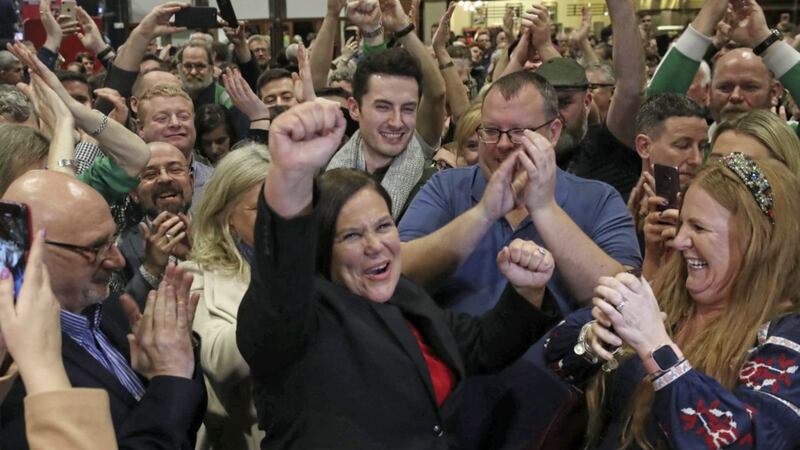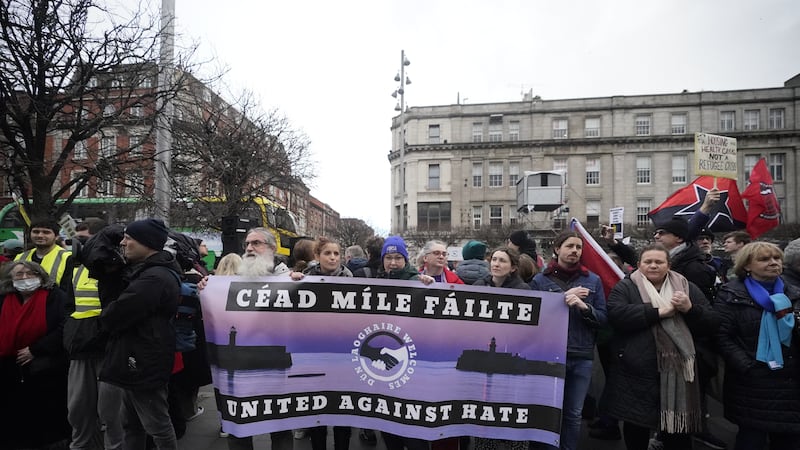In generations to come, people will look back in amazement at the pace with which change came dropping during this remarkable period in Irish history.
Old narratives about an impoverished, stale and backward-looking Irish state and society have long since been consigned to the history textbooks, whilst the social, political and electoral changes that continue to occur north of the border give credence to a sense that we are merely approaching the dawn of a new era when old certainties can no longer be taken for granted.
Sinn Féin’s performance in the Dáil election will signal the demise of Civil War politics in the Republic. Fine Gael and Fianna Fáil collectively represent less than 44 per cent of the southern electorate, a shadow of their former selves. A grand coalition involving the two parties will be tantamount to both conceding that the primary fault lines in southern Irish politics were now ideological, no longer rooted in a century old conflict. That will suit Sinn Féin almost as much as a place in government right now as it will allow the party to dominate the opposition benches and build towards a future Dáil election which could yield the even greater electoral dividend of potentially leading a genuinely left-leaning coalition.
Walking in her own shoes, Mary Lou McDonald has delivered a significant advance for modern Irish republicanism, one that will have major implications and consequences in the time ahead.
The party’s triumph was primarily about the credibility of its change narrative, both in terms of policy substance and the personnel in place to deliver the message. Their fortunes were altered dramatically because of a range of factors, not least its own decision to shift from a protest platform to one founded on devising and offering alternatives, particularly in the area of housing.
The changing faces of Sinn Féin played a decisive role. Gerry Adams may well have had the vision to set the party on a course to become a political powerhouse on both sides of the border, but the realisation of that aspiration proved to be contingent upon him being replaced as leader.
Those voting for Sinn Féin represent a sizeable section of every demographic group. This was not about young people, ignorant of the lived memories of the Troubles, making a decision to opt for Sinn Féin. More ominously for the established parties, this was a vote achieved because people of all ages, knowing the torrid history of the north of Ireland and the IRA’s role in its conflict (amongst other combatants), decided that the Sinn Féin of Mary Lou, Pearse and Eoin could not reasonably be judged by that measure.
The assertive manner with which Mary Lou McDonald pulled rank on Conor Murphy over the Paul Quinn comments and reined in David Cullinane for his crass post-election utterances indicate that the Sinn Féin leader has no intention of allowing the party’s detractors to corner her over legacy issues. Whilst Sinn Féin will never disavow the now departed Irish Republican Army of which many of its former leaders and representatives served, the manner in which it is commemorated and spoken about will be something the current Republican leadership will address in the time ahead. The past will not be allowed to shackle the potential for this generation of Republican leaders to shape the Ireland of today and tomorrow.
Irish unity may not have been a major factor determining its vote, but Sinn Féin will rightly use its unprecedented position of influence and authority within the state to argue for its manifesto commitments to be delivered upon. After all, Sinn Féin won the popular vote, and the results of the RTE exit poll on election night confirmed strong support for the party’s stance on a border poll in the near future.
The party will feel empowered to demand the convening of a citizens assembly to explore the constitutional future of Ireland whilst also pursuing the establishment of a Joint Oireachtas Committee on Irish unity. Both policies were included in their manifesto. This paper has also reported how the Aontú leader, Peadar Toibin, has signalled his intention to pursue speaking rights for northern MPs in the Dáil.
Increasingly, political parties will find themselves thinking 32 as a consequence of the Dáil’s new arithmetic. That will be the enduring legacy of this election.








